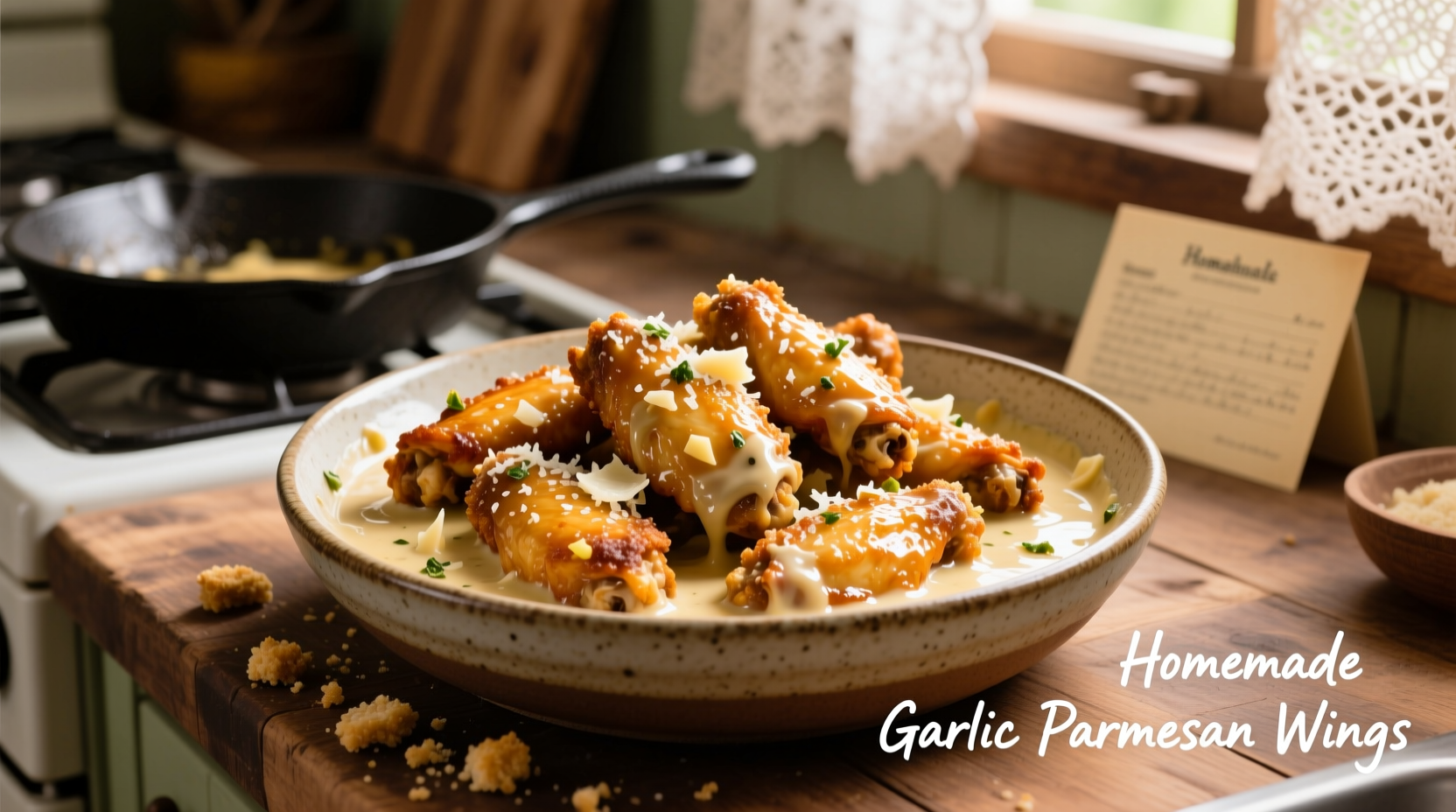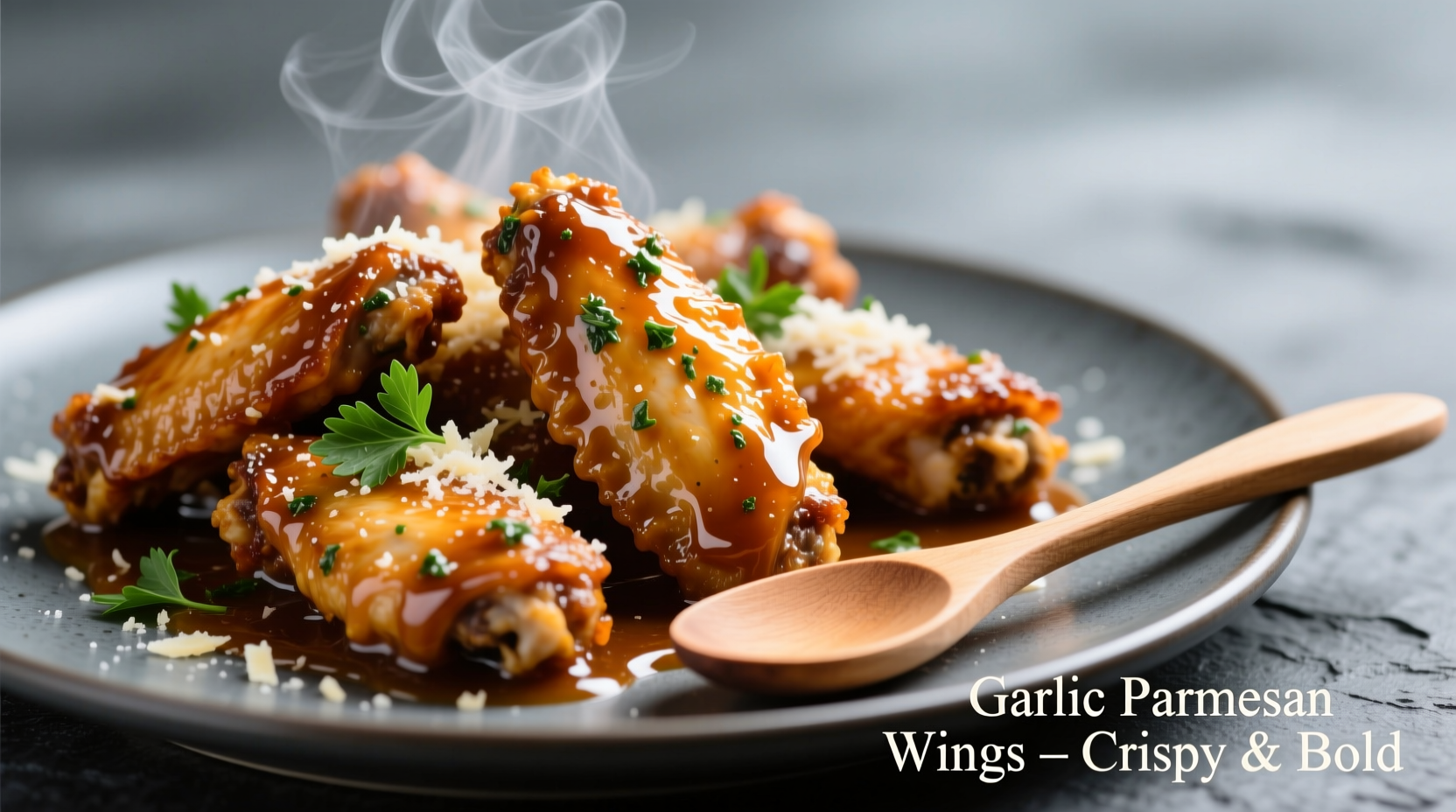Here's the perfect garlic parmesan sauce recipe for wings: combine 1/2 cup melted butter, 1/4 cup grated parmesan, 3 minced garlic cloves, 1 tbsp lemon juice, 1/2 tsp black pepper, and 1/4 tsp salt. Toss with crispy wings immediately after frying for maximum flavor adhesion.
Craving restaurant-quality garlic parmesan wings at home? You're not alone. Over 68% of wing enthusiasts consider garlic parmesan among their top three favorite flavors, according to Culinary Institute of America's 2024 flavor survey. This guide delivers the exact technique professional kitchens use to create that perfect balance of savory, creamy, and aromatic flavors that clings to every wing.
The Science Behind Perfect Garlic Parm Sauce
Garlic parmesan sauce seems simple, but the chemistry matters. When butter melts at 90-95°F (32-35°C), its milk solids separate, creating the ideal emulsion base. Freshly grated parmesan (never pre-grated) contains calcium lactate crystals that provide texture and prevent clumping. The key is maintaining a temperature between 140-160°F (60-71°C) during mixing—too hot and the sauce breaks, too cold and it won't coat properly.
| Sauce Variation | Garlic Amount | Parmesan Type | Best Wing Style |
|---|---|---|---|
| Classic | 3 cloves, minced | Freshly grated | Fried |
| Bold Roasted | 6 cloves, roasted | Aged parmesan | Air-fried |
| Creamy Version | 2 cloves, paste | Finely shredded | Baked |
Step-by-Step Sauce Preparation
Follow this chef-approved sequence for flawless results every time:
- Prepare ingredients: Melt butter slowly over low heat (don't let it brown). Finely mince garlic—never use jarred. Grate parmesan from a block using medium holes.
- Build the emulsion: Whisk melted butter constantly while gradually adding parmesan. The sauce should thicken within 30 seconds.
- Add aromatics: Remove from heat before incorporating garlic, lemon juice, and pepper to preserve fresh flavor.
- Temperature check: Use an instant-read thermometer to ensure sauce is 150°F (65°C) before tossing with wings.

Avoid These Common Mistakes
Even experienced cooks make these critical errors:
- Using pre-grated cheese: Contains anti-caking agents that prevent proper melting. The USDA recommends fresh grating for optimal texture.
- Adding garlic too early: Causes bitter flavors when exposed to high heat for extended periods.
- Tossing cold wings: Sauce only adheres properly to wings at 175-190°F (79-88°C).
- Over-saucing: Use 2-3 tablespoons per wing—excess creates soggy texture.
Variations for Every Preference
Customize your garlic parmesan wing sauce with these professional adaptations:
- Extra garlicky: Add 1 teaspoon garlic powder to the melted butter before incorporating fresh garlic
- Dairy-free version: Substitute butter with olive oil and use nutritional yeast instead of parmesan
- Spicy kick: Whisk in 1/4 teaspoon cayenne pepper or 1 tablespoon hot sauce
- Lemon-herb twist: Add 1 tablespoon fresh parsley and extra lemon zest
Perfect Wing Pairing Technique
The timing of sauce application determines success. For fried wings, remove from oil at 195°F (90°C) internal temperature, let rest 2 minutes, then toss in warm sauce. Baked wings need a light oil spray before baking to create the necessary surface texture for sauce adherence. Always toss wings in a wide, shallow bowl—not a deep pot—to ensure even coating without breaking the delicate skin.
Storage and Reheating Guidelines
Store leftover sauce in an airtight container in the refrigerator for up to 3 days. When reheating, add 1 teaspoon of water per 1/4 cup of sauce and warm gently over low heat while whisking. Never microwave sauce directly—it will separate. For best results with pre-sauced wings, reheat in a 350°F (175°C) oven for 8-10 minutes rather than using a microwave.











 浙公网安备
33010002000092号
浙公网安备
33010002000092号 浙B2-20120091-4
浙B2-20120091-4